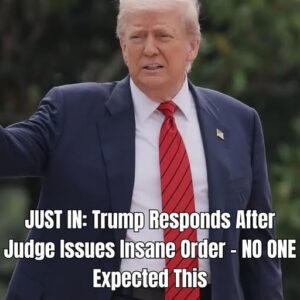A federal judge on Friday ruled that the Trump administration cannot enforce an executive order requiring documentary proof of U.S. citizenship on federal voter registration forms, declaring the policy an ‘unconstitutional’ overreach of presidential authority.
U.S. District Judge Colleen Kollar-Kotelly in Washington, D.C., sided with the Democratic National Committee and several purported civil rights groups that sued the administration.
“The first question presented in these consolidated cases is whether the president, acting unilaterally, may direct changes to federal election procedures,” Kollar-Kotelly wrote in her 48-page opinion. “Because our Constitution assigns responsibility for election regulation to the States and to Congress, this Court holds that the President lacks the authority to direct such changes.”
Kollar-Kotelly further wrote that “the Constitution assigns no direct role to the President in either domain” when it comes to setting voter qualifications or regulating election mechanics. The judge’s decision grants a partial summary judgment in favor of the plaintiffs and permanently bars the U.S. Election Assistance Commission (EAC) from implementing or enforcing any proof-of-citizenship requirement on the federal voter form.
The ruling halts enforcement of a key provision of President Trump’s March executive order that mandated government-issued proof of citizenship for anyone registering to vote in federal elections. The order also directed the attorney general to establish data-sharing agreements with state election officials to identify potential cases of fraud and conditioned certain federal election grants on compliance with “federal election integrity standards.”
White House officials defended the executive order and vowed to appeal the ruling.
“President Trump has exercised his lawful authority to ensure only American citizens are casting ballots in American elections,” White House deputy press secretary Abigail Jackson said in a statement. “This is so commonsense that only the Democrat Party would file a lawsuit against it. We expect to be vindicated by a higher court.”
The plaintiffs — including the Democratic National Committee, the League of Women Voters Education Fund, and the League of United Latin American Citizens — argued that Trump’s directive would unlawfully restrict voter access and burden election officials. They said the requirement would create new barriers for eligible voters, especially naturalized citizens and Americans without ready access to official documents such as birth certificates or passports.
Kollar-Kotelly first blocked the executive order in April when she issued a preliminary injunction preventing its immediate implementation. Friday’s decision makes that injunction permanent for the citizenship provision, while the broader lawsuit continues.
The case will proceed as the court considers other elements of Trump’s order, including a rule that would require all mailed ballots to be received—not merely postmarked—by Election Day in order to be counted. That component has drawn opposition from states such as Washington and Oregon, where virtually all voting is conducted by mail.
The ruling marks the second time a federal court has blocked Trump’s March 25 order. In June, a separate federal judge halted the measure after a lawsuit from 19 Democratic state attorneys general, who argued it infringed on states’ authority to manage elections.
Supporters of Trump’s election directives say they are needed to protect voter confidence and ensure that only U.S. citizens cast ballots. Trump has defended the measures as “common sense” safeguards. “There are other steps that we will be taking in the coming weeks,” the president said shortly before signing the order. “We think we’ll be able to end up getting fair elections.”
The EAC, which oversees the federal voter registration form used in national elections, had been reviewing whether to include a citizenship documentation requirement following the March order. Under Friday’s ruling, the agency is permanently prohibited from taking any action to add that requirement.
U.S. Code prohibits illegal aliens from voting in federal elections and the President of the United States is empowered under the Constitution to enforce federal law. The Trump administration is expected to appeal the court ruling.





